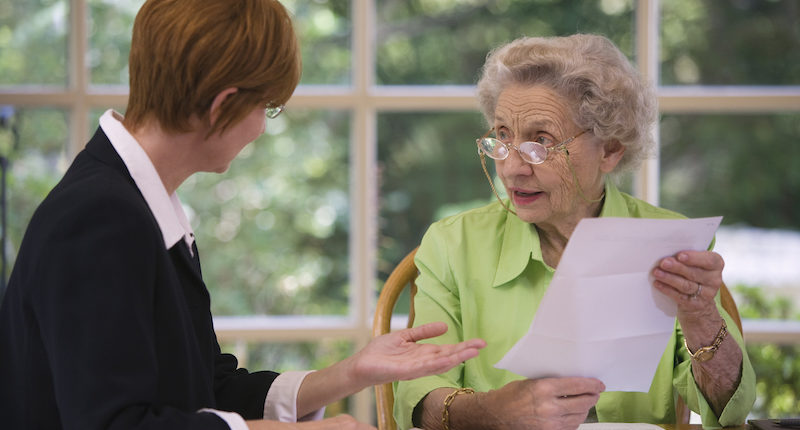Elder Abuse Laws in California: What You Should Know

It’s ideal to understand elder abuse laws in California, especially if you’re personally affected.
Read more details here.
Introduction
Elderly abuse is a growing problem in our country that is more common than we realize. According to the National Center on Elder Abuse (NCEA), one in ten elder adults will experience some type of abuse. Unfortunately, this number could be higher since reporting is difficult as cases of elder abuse are usually only discovered with visits to the emergency room, for example. This leaves an entire population vulnerable to abuse – without anyone really knowing about it or really even knowing what to look for.
Just as children depend on adults to protect and care for them, the elderly population needs protection and care, too. Some may struggle with mental concerns, such as dementia while still being very able-bodied. Others may have their mind intact but have a hard time physically. Regardless of the situation, having someone to oversee their sense of wellbeing is important. The State of California has put elder abuse laws in place to provide for them – and here’s what you should know.
What is Elder Abuse?
As defined by the Centers for Disease Control and Prevention (CDC), “Elder abuse is an intentional act or failure to act that causes or creates a risk of harm to an older adult. An older adult is someone age 60 or older. The abuse occurs at the hands of a caregiver or a person the elder trusts.” This abuse can appear in many different forms, including physical, sexual, financial, neglect, emotional and psychological.
So, how can you tell if someone may be abused? Well, the signs can be broken down into three main categories and include:
Physical signs of elder abuse include unexplained bruises and sores, poor hygiene, unsanitary living conditions, lack of attention to medical needs, missing daily living devices like hearing aids and glasses, and dehydration or weight loss.
Emotional signs of elder abuse include withdrawal or isolation from friends and family, high levels of fear or anxiety, changes in behavior or sleep patterns.
Financial signs of elder abuse include theft, unpaid bills, fraudulent or forged documents, sudden changes in spending patterns, and changes to a will or other important documents.
There are certain people who are mandated by the state to report signs of elder abuse, such as:
- Additional caretakers or family members
- Medical providers
- Police officers
- Social workers
- Financial advisors
- Clergy members
What California Law Says
Penal Code 368 offers the elderly population of California special protection against abuse – and penalties for it are severe. The district attorney is left with discretion to press felony or misdemeanor charges, allowing each case to be handled uniquely.
Under California law, elder abuse involves a victim that is 65 years of age or older that has been subjected to physical abuse, emotional abuse, or financial abuse. This is often, but not always, done at the hands of a caretaker, such as a family member, nursing home staff, medical professional, and the like. The elements of these charges can be broken down further to help the DA decide which one to pursue.
The below are indicative of a felony elder abuse charge:
- The caretaker knew – or should have known – that the victim was 65 years of age or older.
- The caretaker had a legal duty to care for the elder.
- The caretaker’s actions were negligent, willful, or intentional and caused the elder emotional or physical pain. Or, permitted another person to inflict this pain.
- The caretaker’s actions could have caused great bodily harm or even death.
The below are indicative of a misdemeanor elder abuse charge:
- The caretaker’s actions were negligent, willful, or intentional and caused the elder emotional or physical pain. Or, permitted another person to inflict this pain.
- The caretaker knew – or should have known – that the victim was 65 years of age or older.
- The caretaker had a legal duty to care for the elder.
- The caretaker’s actions could have endangered the life or health of the elder.
Suspect Elder Abuse? Here are Your Next Steps
If you suspect someone is suffering due to elder abuse, there is no time to wait in making a report. Depending on its severity and if you think the victim’s immediate health is at stake, you should call 911 right away. Law enforcement officers are trained to handle elder abuse cases, especially how to assess and then handle them.
Another step you can take for less significant damages is to contact the local county’s Adult Protective Services (APS). This is a state and county faded program that has been put in place to help elderly residents who have trouble meeting their needs. Reporting to this agency can result in an investigation that works closely with other governmental bodies, such as state and local law enforcement, licensing boards, the Office of the State Long-Term Care Ombudsman (OSLTCO), and other public agencies.
Hiring an Attorney
Elder abuse is a serious matter that comes with criminal charges. Working with an attorney can be beneficial when proving your case, as this population suffers many conditions such as dementia, Alzheimer’s Disease, depression, and more that could be challenging. Not remembering an incident or being able to explain what happened means the facts are hard to come by.
Experienced attorneys have tools they can use to help determine the facts of the case so that the claim does not end up unfounded or unsupported. The elderly population is one that is vulnerable and at serious risk for abuse, whether financial, emotional, or physical. And, in facilities where it occurs, if it is happening to one individual, there is a good chance it is happening to others, as well. This is why it is so important to speak up and report the abuse – and then seek legal counsel so that further action can be taken.
Understand that while filing a lawsuit cannot undo the pain that has been caused by the abuse, it can offer compensation in the form of damages as well as stop the spread of abuse to additional vulnerable individuals.
Someone may be depending on you to speak up.
Are you in search for a certified attorney to represent you?
Let us help you find one today!

